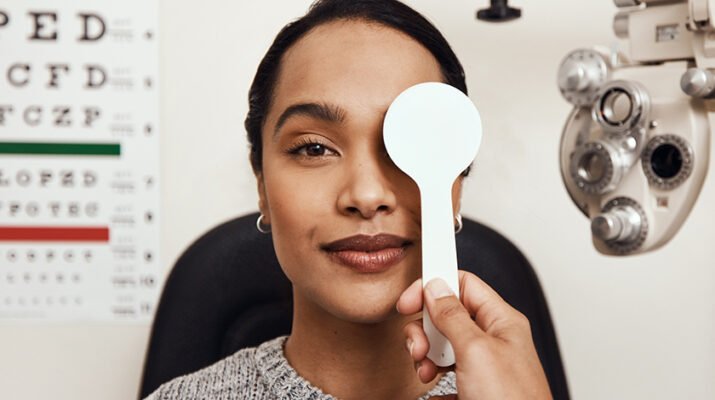By Deborah Jeanne Sergeant

Perhaps you notice a vision supplement at your local drugstore or in a commercial on TV. Will this product really help preserve your vision?
That depends.
Eye health is not as simple as popping a pill.
Brian Madow, physician and Ph.D., offered his expertise on the topic. Madow directs Retina Service at UBMD Ophthalmology at the Ross Eye Institute and is a clinical professor at the Ira G. Ross Eye Institute, Department of Ophthalmology, Jacobs School of Medicine and Biomedical Sciences at UB.
Madow said there’s a difference between someone who’s healthy and without significant eye problems and one who has eye problems where a nutrient deficiency contributed to the problems.
“Everyone is trying to do something to help with their health,” Madow said. “They want to prevent cataracts and glaucoma.”
In general, an active lifestyle, eschewing tobacco use and following a healthful diet support the body’s good health, including vision. A healthful diet is not only about avoiding fried, sugary and processed foods. It is also about focusing on the nutritious foods that support bodily health.
“The accepted standards are from clinical trials that prove or disprove what vitamins can do and not do,” Madow said.
Many people see the AREDS2 supplement and assume that this will support general eye health. However, Madow explained that the nutraceutical was proven beneficial for only one population of patients: those with intermediate stage age-related macular degeneration. Taking AREDS2 as directed can slow the progression to advanced stage for these patients.
The research indicates that those diagnosed with intermediate stage macular degeneration who take the supplement under the direction of an ophthalmologist or optometrist experienced about a 25% reduction in rates of advanced vision loss over five years.
Madow said that the original AREDS formula included high levels of beta carotene, which proved to raise the risk of death among former or present smokers. AREDS2 leaves out the beta carotene and uses lutein and zeaxanthin. It also includes vitamins C and E, and zinc and copper.
“When they go to the pharmacy for other reasons, they see eye vitamins on the shelf and think they should take it for their eye health,” Madow said. “But they’re only prepared and aimed and designated for patients with age-related macular degeneration. This is the only time where I’ll say you need eye vitamins.
“The vitamins are not preventing glaucoma, cataracts or any other reason. The vitamins are formulated in a special formula in a higher quantity than over-the-counter multiples.”
He is not aware of any other nutraceuticals proven helpful for supporting vision health.
“What we usually say to the patient is to go to the pharmacy for an over-the-counter AREDS2 supplement,” Madow said. “The brand isn’t important. You want AREDS 2. Added ingredients, no one knows if they’re any additional benefit. We say to use the original AREDS 2 formula.”
Many patients also ask if they should stop taking their multivitamin while taking AREDS2. Madow said that’s fine, but in general, most people who eat a healthful diet should have all the nutrients they need from food sources.
“There are anecdotal reports that some things are good for treating glaucoma or treating cataracts,” Madow said. “We don’t have that much benefit. If it’s 10 or 50 patients, the firm evidence is lacking there. Good evidence on how certain substances are come from large clinical trials.”
Some evidence exists that omega-3 fatty acids can help with dry eye symptoms, but anyone considering taking a supplement should discuss it with their primary care provider.

